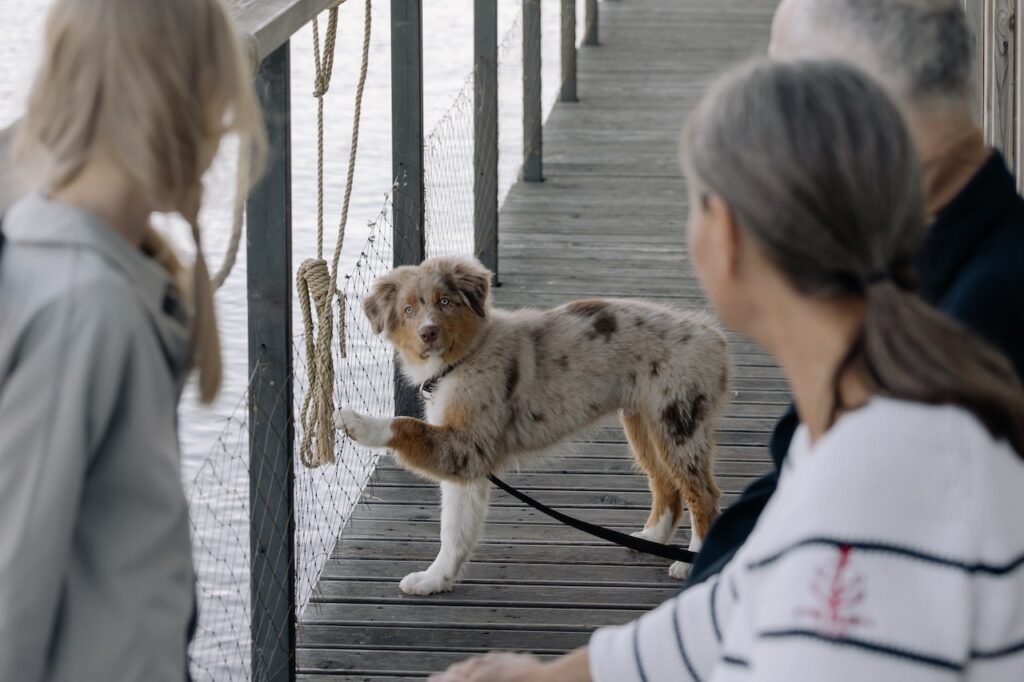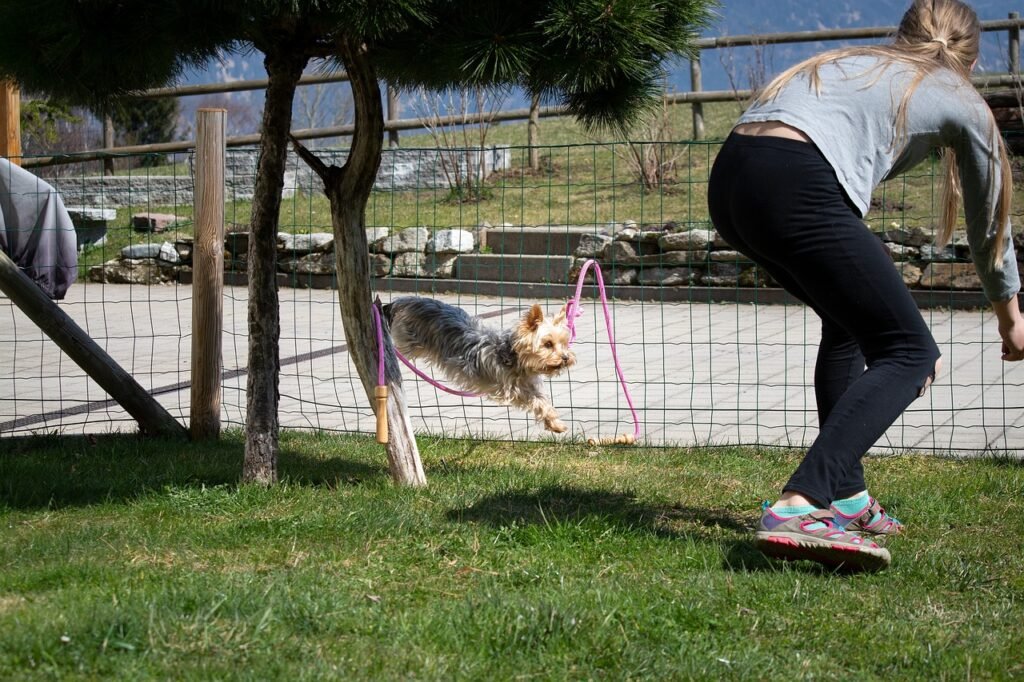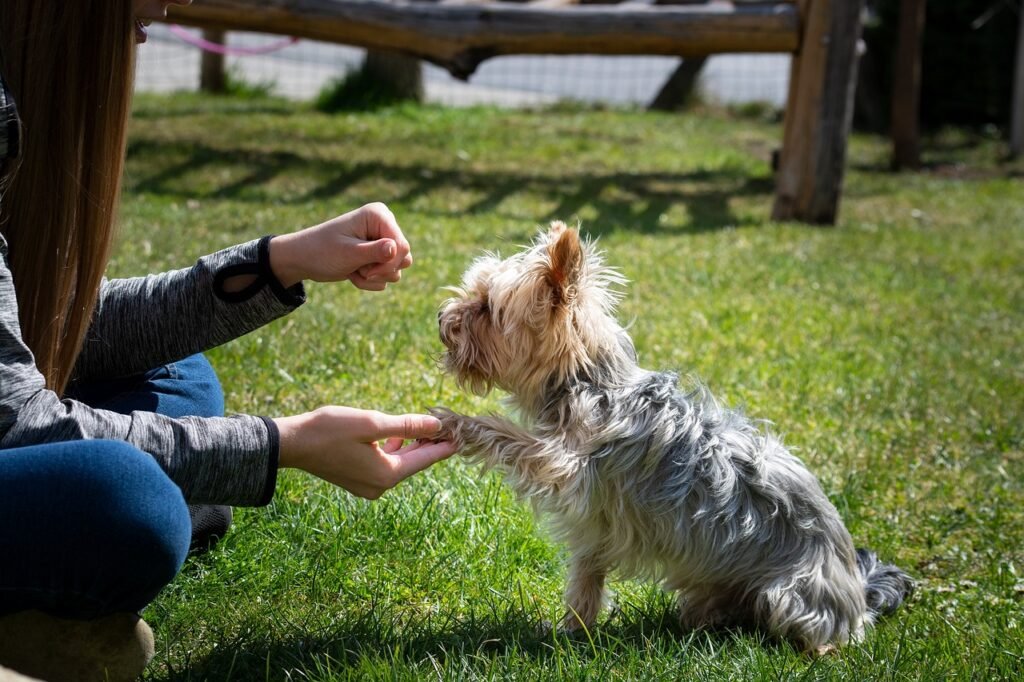The moment has arrived. You’ve done your research, visited shelters, and finally found the one — not a wiggly puppy, but a majestic, wise-looking adult dog. Bringing home an adult dog is akin to starting a new chapter in a book where a few chapters have already been written. Curious about how to turn the pages smoothly and ensure a happy storyline? Buckle up, and let’s take a ride down this exciting lane.
Setting The Stage: A Homey Welcome
You wouldn’t invite guests over without prepping your home, right? Same logic applies here.
- Safe Spaces: Designate a cozy spot for your dog, be it a comfy bed or a quiet corner.
- Dog-Proofing: Ensure there’s nothing harmful within reach. You never know what might catch their fancy!
Think of it as setting the stage for a grand play. Every prop matters.
The First Meet and Greet: Taking Baby Steps
First impressions matter, even in the dog world.
- Calm Environment: Ensure the house is quiet and relaxed.
- Limit Initial Meetings: Too many faces might overwhelm. Introduce other members and pets gradually.
Remember the nervousness on the first day of school? Your new dog might be feeling something similar.
Routine: The Magic Wand for Assurance
If there’s one thing dogs appreciate (besides treats, of course), it’s predictability.
- Consistent Feeding and Potty Times: This helps them understand what to expect.
- Regular Walks: At the same time every day, if possible.
Routines offer comfort. It’s like knowing you’ll always find your favorite snack in the top left cabinet. Reassuring, isn’t it?
Communication: The Key to Mutual Understanding
Dogs may not speak our lingo, but they’re pros at understanding body language.
- Stay Calm: Adult dogs are adept at picking up on human emotions.
- Use Clear Signals: Consistency in commands can help them understand you better.
Ever played charades? Think of this as an extended version, with more tail wags!
Training and Reinforcement: Age is Just a Number
Who says you can’t teach an old dog new tricks?
- Positive Reinforcement: Rewards and praises go a long way.
- Professional Training: Consider enrolling in classes if needed.
Just as wine gets better with age, with the right training, so can an adult dog’s behavior.
Health First: Ensuring A Smooth Transition
A new environment can be a tad stressful. Keeping an eye on their health is paramount.
- Vet Visits: Schedule a check-up soon after the adoption.
- Dietary Consistency: If changing their food, do it gradually.
It’s like moving to a new city and finding the best doctor. Essential and reassuring.
Patience is a Virtue: Give It Time
Adjusting to a new home, especially if there are past traumas, can take time.
- Avoid Pushing Them: Let them take things at their own pace.
- Celebrate Small Victories: Every new positive behavior is a step forward.
Rome wasn’t built in a day, and trust isn’t either. But brick by brick, it solidifies.
Bonding: Building A Connection That Lasts
Spend quality time together. Create memories.
- Playtime: Find out their favorite games.
- Cuddles and Petting: Affection can strengthen your bond.
Remember the joy of making a new friend and discovering shared interests? This is the canine version of that.
Conclusion
Bringing home an adult dog is a journey of understanding, patience, and love. While the initial chapters of their story might have been written elsewhere, the pages ahead are blank, waiting for you both to fill them with adventures, snuggles, and countless memories. As the saying goes, “The best is yet to come.”
Key Takeaway: Introducing an adult dog to your home is a process that demands preparation, understanding, and time. By setting routines, prioritizing communication, and ensuring a strong health foundation, you lay the groundwork for a bond that will stand the test of time. Remember, every wag, woof, and nuzzle is a paragraph in the heartwarming tale you’re co-authoring. 🐾



